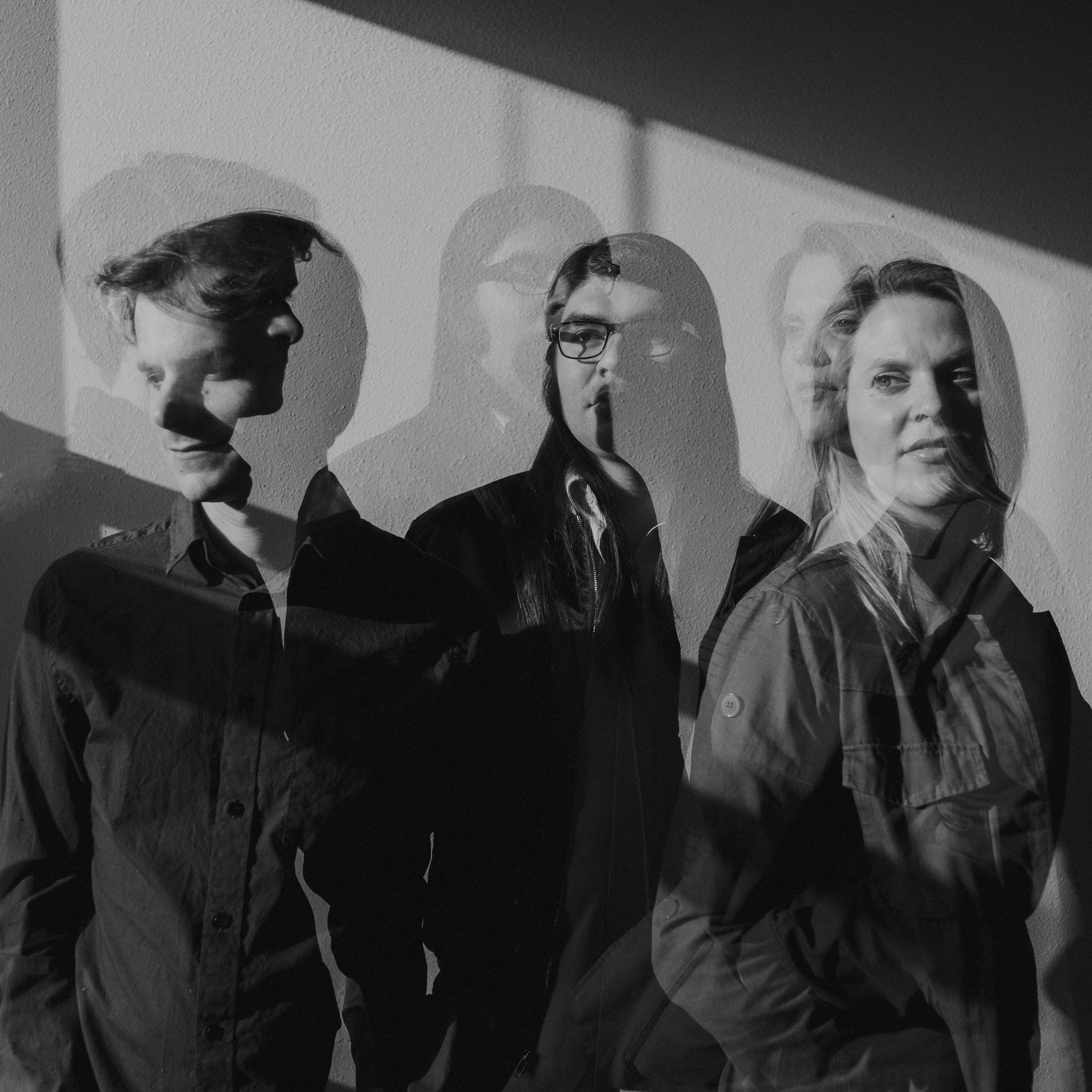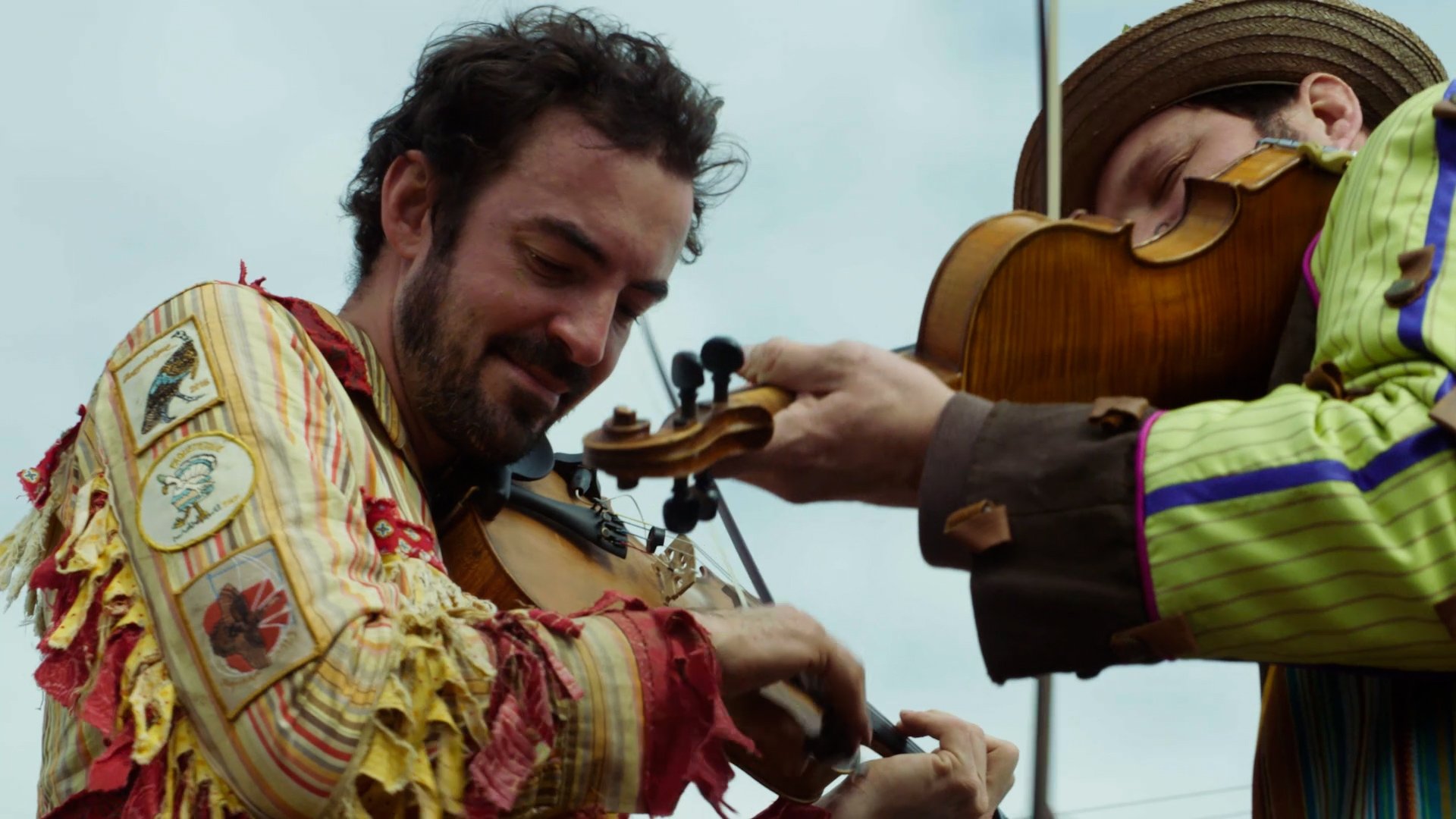Mark Bingham's Neither Cosmic nor Cajun; He Just Plays One on Record

Michot’s Melody Makers with Mark Bingham (bottom left), by Zack Smith
His stint in Michot’s Melody Makers is a logical extension of his career on both sides of the mixing console.
When Mark Bingham ran Piety Street Recording in New Orleans, his client list ranged from Dave Matthews to Elvis Costello and Allen Toussaint to Pretty Lights to John Scofield. He brought a fundamental integrity to any project he worked on, no matter how commercial, and he helped local artists he believed in get their music made as well. But in 2013, Bingham sold the studio and relocated to Henderson, Louisiana.
“The spiritual intention of the city of New Orleans and its music scene is vastly different than it was 10 or 20 years ago,” he said at the time. “It would have been fine to keep going, but I felt the world had changed.” He moved into a studio space established by Dr. Jimbo Walsh and Janna Saslaw, and the lower overhead meant he could be more selective and only take on tasks that interest in.
“I don’t have to make $20,000 a month,” Bingham says, laughing.
He has stayed busy enough during the pandemic, writing on his memoirs and a recording a piece for the tribute to the late producer and Saturday Night Live musical director Hal Willner. Bingham collaborated with Willner on a number of projects, and the track he described sounded perfect for both men. It involves a recording of Willner with singer Marianne Faithfull and poet Gregory Corso—“he was on morphine but he wanted to drink brandy,” Bingham says—merged with versions of “I’ll Be Seeing You,” the title being a familiar Willner farewell. Bingham maps out the different takes of the song including a brass choir arranged by Steven Bernstein, and a concluding take with an “I’ll Fly Away” second line feel performed by pianist Tom McDermott, fiddler Michael Doucet of BeauSoleil, and Bingham.
“It’s seven minutes long and I worked on it for a month,” Bingham says.
The track he describes connects a handful of musical and artistic traditions in the way that Willner’s own tribute albums to Kurt Weill, Walt Disney, Charles Mingus, and most recently T. Rex do. Bingham’s game willingness to explore interesting sounds and musical ideas extend to his own musical efforts, which include joining Michot’s Melody Makers, who released Cosmic Cajuns from Saturn this summer. Bingham has always treated genre boundaries as arbitrary and there to be pushed if not rubbed out completely. When The Lost Bayou Ramblers’ Louis Michot invited him to play with the band for the first time, it was because Bingham had recorded sessions with Michot, and the musical sense he demonstrated on those occasions gave Michot confidence that he could bring something fresh to the Melody Makers.
“Mark’s style fit right in,” Michot says. “That first gig he joined us at Bayou Teche sounded like he had been playing with us for years. He added so many levels that his guitar was morphing between ambient steel guitar, second fiddle, and and rhythm guitar, all while sounding like a night sky full of shooting stars, and maybe even some Aurora Borealis in there.”
On Cosmic Cajuns from Saturn—recorded live at the Saturn Bar pre-pandemic—Bingham makes his presence felt almost immediately. “Ma jolie petite fille” opens with Michot’s fiddle playing the song’s signature riff, but within the first 30 seconds, Bingham’s guitar sets up a sonic backdrop that pulsates behind Kirkland Middleton’s pounding drums and Michot’s country fiddle. It’s not the choice that a century of guitarists playing this repertoire before him have made, but Bingham drones behind Michot just as countless fiddlers and accordion players did to support the fiddle in the past. The specifics are new, but Bingham functions in the music in the same way that countless traditional players have, which allows Michot’s Melody Makers to sound traditional and contemporary at the same time.
They take the Cajun fiddle tradition farther forward with “La jument de Michot.” On it, Michot sings into a distorted mic while Bingham slowly outlines a countermelody behind him. He subtly gives the song a spiral motion as his guitar and Michot’s fiddle seem to circle each other. In that song and many on the album, you can imagine a dance floor filling, but there’s a 20-minute stretch late in the show that likely gave the dancers a break. The setlist veered toward swamp psychedelia as the performances become more improvisational and the structure, less obvious. The nature of Bingham’s contributions don’t change in that passage, but when the instruments meet as equals to explore sonic space, the efforts of each player become clearer and what Bingham does stands out more distinctly.
“I love dynamics and ambient drones,” Michot says. “Just because I play traditional music doesn’t mean we can’t have all that!”
The gig appealed to Bingham right away because it was so loose. Michot asked him if he wanted to sit in one day, and he played his first gig without a rehearsal or any knowledge of the songs. They still haven’t rehearsed, but Bingham has learned the names of songs and their keys, though that’s not always helpful. “The way Louis starts, you can’t always tell what song we’re going to play,” he says
Still, the uncertainty is part of the appeal for Bingham. “It’s just listening,” he says. “I like playing like that because you’re always on your toes.”
Bingham is the sort of player Michot has gravitated toward. In The Lost Bayou Ramblers, he and his brother Andre are the only musicians who grew up in Cajun music tradition. In Michot’s Melody Makers, he’s the only one, and he has surrounded himself in both bands with interesting musicians regardless of their backgrounds. Current Rambler guitarist Jonny Campos played in the Lafayette indie rock band Brass Bed before joining, and Michot has collaborated with improvisors, as well as contemporary rock and even heavy metal musicians, all to play music that makes sense today, regardless of the decade or century of the songs’ origins.
“The philosophy has pretty much been the same as always for me,” Michot says. “I’ll play my songs and whoever was playing with me follows my foot movement for the chords if needed.”
Bingham had some background in zydeco, but he discovered that the musical forms in the Cajun music that interests Michot can be eccentric with a dropped beat here, an extra bar there. But after years of working with musicians including BeauSoleil guitarist David Doucet, he had ideas about how to find his place in the music and make meaningful contributions.
“There are shared languages,” he says. “[Jazz bassist] James Singleton can play any standard in any key. It’s all the same after a while.”
The freedom to pursue the musical ideas that interest him has long been a part of Bingham’s presentation. He hasn’t had a manager or agent to nudge him in more profitable directions. He has recorded artists who were pursuing conventional, music industry careers and concluded, “I was played out on that shit 30 years ago.” He’d rather put his time in working with an artist like Bernstein, whose music is the logical extension of who he is, and who’s working to make a living. “The idea of doing things to get ahead in the music business—I don’t even know what the music business is these days.”
It helps that Bernstein’s musical resumé is similarly scattered across the jazz, R&B, and rock landscapes. In 2014, he recorded Viper Drag with pianist Henry Butler, but he’s well known for his work with The Lounge Lizards, his own Sex Mob and Millennial Territory Orchestra, and Hal Willner projects. Bingham now has the luxury to put in the time to get his work right. “He’s a brilliant arranger,” Bingham says. “He’s channeling everything from Duke Ellington to Mingus to Fletcher Henderson to Stan Kenton and Don Ellis. There’s the history of the music of the last 100 years [in his compositions] and every bar might be different in terms of the voicing. That’s a wonderful thing to work on.”
Bingham broke into music in 1966 when he worked as a songwriter in Los Angeles. He had a song cut by the Everly Brothers that never came out, and he recorded a single on Warner Brothers Records that he hasn’t heard in 40 years. “I saw what success was—I lived in Laurel Canyon in the ’60s and didn’t want anything to do with it,” he says. Bingham realized that he didn’t care enough about the pursuit of a hit and stardom and went back to school.
Since then, his career has largely been the pursuit of the ability to do the work that interests him, just like most of us. That meant involving himself music that clearly reflects an individual point of view in collaborative settings. The names he drops—“When did I meet Van Dyke Parks? 1968?”—have similarly unbordered visions, and the talents he has performed with have also been distinctive. When Bingham contributed a version of “Oh Heavenly Salvation” to Willner’s Lost in the Stars: The Music of Kurt Weill in 1985, he did so with two of New Orleans’ most individual voices, Johnny Adams and Aaron Neville. Avant-garde musicians John Zorn and Elliot Sharp, poet Allen Ginsberg, and singer Syd Straw made appearances on his own 1989 album, I Passed for Human.
His production and engineering work are the natural extension of his desire to make interesting music—a desire that started as a musician. Whether behind the board an alumnus of Tom Waits’ touring band or on the bandstand at the Saturn Bar with Michot’s Melody Makers, he’s creating music he can believe in. The only thing that changes is the instrument.
“All I know how to do is play, Bingham says.
Creator of My Spilt Milk and its spin-off Christmas music website and podcast, TwelveSongsOfChristmas.com.






